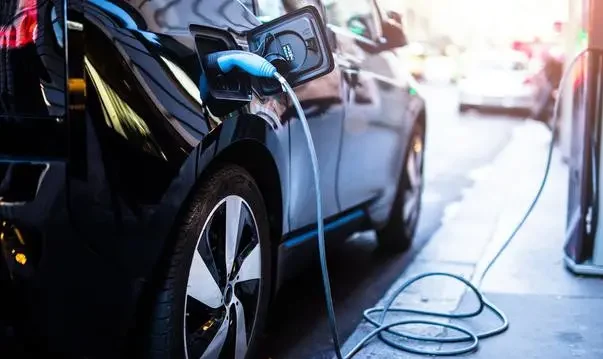Viral KlinikFarma -Electric vehicles (EVs) are rapidly gaining popularity as a sustainable alternative to traditional gasoline-powered cars. As more consumers consider making the switch to electric, understanding the intricacies of EV batteries becomes crucial. The battery is one of the most critical components of an electric car, influencing its performance, range, and overall value. In this article, we will delve into the key aspects of electric car batteries that prospective buyers should know before making a purchase.
The Role of the Battery in Electric Vehicles
The battery in an electric vehicle is essential for powering the electric motor and providing energy to the vehicle’s systems. Unlike internal combustion engines, which rely on gasoline or diesel, EVs use electricity stored in batteries to propel the car. Understanding the role of the battery helps in making an informed decision about which electric vehicle best suits your needs.
Key Functions of an Electric Car Battery
- Powering the Motor: The battery supplies the necessary electricity to drive the electric motor, which in turn powers the wheels of the vehicle.
- Storing Energy: It stores electrical energy, which can be recharged from various sources, including home charging stations and public charging infrastructure.
- Supporting Vehicle Systems: In addition to powering the motor, the battery also supports other vehicle systems such as climate control, infotainment, and lighting.
Types of Electric Car Batteries
Electric car batteries come in different types, each with its own set of characteristics and benefits. Understanding these types can help you choose the right vehicle based on your requirements.
1. Lithium-Ion Batteries
Lithium-ion (Li-ion) batteries are the most common type used in modern electric vehicles. They are known for their high energy density, long lifespan, and relatively low weight.
- Advantages: High energy density, longer lifespan, faster charging times.
- Considerations: Can be expensive, sensitive to extreme temperatures.
2. Nickel-Metal Hydride (NiMH) Batteries
Nickel-metal hydride batteries are another type used in some hybrid and electric vehicles. They offer a balance between performance and cost.
- Advantages: Lower cost compared to lithium-ion, more durable in extreme temperatures.
- Considerations: Lower energy density, heavier than lithium-ion batteries.
3. Solid-State Batteries
Solid-state batteries are an emerging technology that promises higher energy density and improved safety compared to liquid electrolyte batteries.
- Advantages: Higher energy density, potentially safer due to the solid electrolyte.
- Considerations: Still in development stages, potentially higher cost.
Key Factors to Consider When Evaluating EV Batteries
When considering an electric car, it’s essential to evaluate the battery based on several factors to ensure it meets your needs and expectations.
1. Battery Range
The range of an electric vehicle refers to the distance it can travel on a single charge. This is a critical factor for many buyers, especially those who use their vehicle for long commutes or road trips.
- Factors Affecting Range: Battery capacity, vehicle weight, driving conditions, and driving style.
- Typical Ranges: Modern EVs offer ranges from around 150 to over 300 miles per charge, depending on the model and battery capacity.
2. Charging Time
Charging time is the duration required to fully charge the battery. This can vary based on the battery’s capacity, the type of charger used, and the current charge level.
- Charging Options: Level 1 (home outlet), Level 2 (home or public charging station), and DC fast charging.
- Typical Charging Times: Level 1 can take several hours to overnight, Level 2 usually takes 4-8 hours, and DC fast charging can provide 80% charge in 30 minutes or less.
3. Battery Life and Warranty
Battery life refers to the duration a battery will remain effective before its performance begins to degrade. A good warranty can provide peace of mind regarding the battery’s longevity.
- Typical Lifespan: Most EV batteries are designed to last between 8-15 years, with gradual degradation over time.
- Warranty: Many manufacturers offer warranties ranging from 8 to 10 years or 100,000 to 150,000 miles, covering battery performance and replacement.
4. Cost of Replacement
While most EV batteries are designed to last for many years, replacement costs can be significant. Understanding the potential costs of battery replacement can help in budgeting for future expenses.
- Replacement Costs: Can range from $5,000 to $15,000 or more, depending on the vehicle and battery type.
- Cost Trends: Battery prices have been decreasing over time due to advancements in technology and economies of scale.
Impact of Battery Technology on Vehicle Performance
The type and quality of the battery can significantly impact the overall performance of an electric vehicle. Factors such as acceleration, top speed, and handling can be influenced by the battery’s characteristics.
1. Acceleration and Power
A high-quality battery with a high discharge rate can provide better acceleration and power output. This is important for performance-oriented models and for a satisfying driving experience.
2. Handling and Weight Distribution
The battery’s weight and placement within the vehicle can affect handling and weight distribution. Manufacturers often design battery packs to be low and centrally located to improve stability and handling.
3. Efficiency and Energy Regeneration
Modern EVs often feature regenerative braking systems that convert kinetic energy into electrical energy to recharge the battery. Efficient battery technology enhances the effectiveness of these systems, improving overall energy efficiency.
Future Trends in Electric Vehicle Batteries
The field of electric vehicle batteries is continuously evolving, with ongoing research and development aimed at improving performance, reducing costs, and enhancing sustainability.
1. Advancements in Battery Technology
Researchers are exploring new materials and technologies to create batteries with higher energy density, faster charging times, and longer lifespans. Solid-state batteries and lithium-sulfur batteries are among the promising developments.
2. Sustainability and Recycling
As the number of electric vehicles increases, the need for sustainable battery disposal and recycling becomes more important. Efforts are underway to develop efficient recycling methods and to use environmentally friendly materials in battery production.
3. Integration with Renewable Energy
Future developments may include greater integration of EV batteries with renewable energy sources, such as solar and wind power. This could lead to innovative solutions for energy storage and grid management.
Understanding the battery in an electric vehicle is crucial for making an informed purchase decision. From battery types and range to charging times and costs, each aspect plays a vital role in determining the suitability of an EV for your needs. As technology advances and the market evolves, staying informed about the latest developments in battery technology will help you choose the right electric vehicle and ensure a satisfying ownership experience.
For those considering the switch to electric, thorough research and consultation with automotive experts can provide valuable insights and help you make a decision that aligns with your driving habits and lifestyle.







